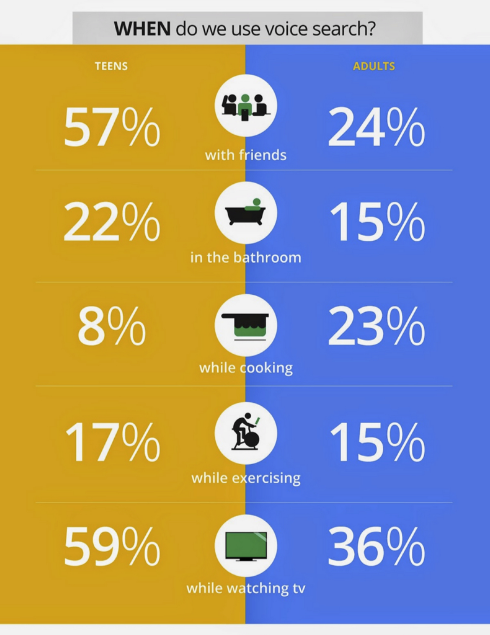Voice Search Gaining in Popularity, Accuracy
Voice Search Growing Fast
Don’t worry, your phone is not becoming HAL 9000, from “2001: A Space Odyssey” now that voice search is becoming the norm. It was only 2011 when we were first introduced to Siri, iPhone’s personal assistant that regularly answered the question, “What’s the weather today, Siri?”
Now we’re seeing virtual assistants surround us everywhere we go, such as Microsoft’s Cortana and Amazon’s Echo products, powered by the Alexa virtual assistant technology. Just a few months ago at Google’s I/O conference, the search engine announced the impending launch of their own virtual assistant: Google Home. These voice recognition products have helped the change the game and as their capabilities improve, we will also see improvements in voice search.

Major tech companies are noticing the trends and are working to develop their products based on the data. Google CEO Sundar Pichai stated that 20 percent of searches through the mobile app and on Android devices were voice searches. If you think this is just a fad, we’re here to tell you it’s not going away. According to “Trends 16” report from Global Web Index, 47% of young mobile users are using voice search tools more this year than last.
Voice searches now account for more than 20% of all mobile searches.
The Benefits of Voice Search
- Speed – Users have found that searching via voice search is much quicker then typing out a question.
- Fun – It still has the new and exciting feeling for users. The newness will wear off eventually but until then, enjoy!
- Ease of Use – With voice search, you don’t have to worry about typing the wrong word or stumbling over your thumbs.
- Accuracy – Surprisingly, the error rate was actually lower for speech than for typing: The English error rate was 20.4% lower, while the Mandarin error rate was a shockingly 63.4% lower (source). Voice search accuracy is only improving. The more accurate it becomes, the less you’ll see incorrect results.
- Less Typing – For some users, they are just tired of typing and ready for the next innovation, hello voice search.
- Driving – (Note: We do not advocate for using mobile devices while driving as it is a dangerous distraction from the road.) Voice search lets drivers keep their eyes on the road while sending a message. While this may be one of the top reasons why people are using voice search, studies have shown that it is just as unsafe as old school texting.
Why Do People Use Voice Search Most?
Search Engine Land analyzed the areas of interest for voice search and narrowed it down to four main categories:
- Personal Assistant – Shopping lists, Appointment reminders, To-do lists, etc.
- Fun & Entertainment – Listening and buying music, Searching for videos, TV listings, Social media, etc.
- General Information – Web searches, recipes, news, travel, etc.
- Local Information – Restaurants, Shopping, Directions, Pizza, Weather, etc.

Image Source: www.marketingland.com
Will Your Website Lose Traffic Because Of Voice Search?
As search behavior continues to develop, websites will have to adjust as well. Will your website still get traffic when people use voice search to find an auto repair shop? It may be time to add new content geared towards how users ask questions about where to find a repair shop or about specific auto repair techniques. For example, a blog is a great place to produce more content that will benefit readers searching for this type of information.
3 Steps to Improve Your SEO for Voice Search
- Conversational Tone – Having a conversational tone helps your brand and your users. A natural tone is more refreshing for readers and if they’re searching the same way, it will also help your SEO.
- Answer FAQs – For auto repair shops, your content should answer common questions about auto repair and consist of phrase such as “auto repair near me.” Customers will most likely be looking for a local auto shop when doing voice search, so by providing content directly related to the “local auto shop” you’re more likely to rank for those voice searches.
- Use Long-Tail Keywords – Long-tail keywords are specific to your users. Their questions are longer, so your keywords should be too.
- Bonus Tip: If you have access to a personal assistant, such as an iPhone with Siri, or an Amazon Echo device using Alexa, periodically ask the assistant questions you think a potential customer might ask. For example, “How often should I get my oil changed?” or “Where is the nearest place for me to get my car fixed?” Keep notes on what the services recommend as you try to figure out how to do the same for your shop.
